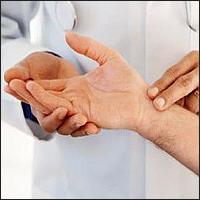Who knows your body best? You? Or your doctor?
People will give different answers to this question. Those answers will indicate where you are along a whole spectrum, and there are many factors which will push us towards one or other end of the spectrum: Have your experiences of healthcare been good or not? What were the attitudes to health and to self-care in your family of origin? Have you been able to take care of your own health in some instances and has this given you confidence? Who do you turn to for support, if not a doctor? Have you researched any alternative therapies? What have you tried?
If I were to compare the way I look after my body to how I look after a car, I can draw some parallels. From the point of view of car maintenance, I am definitely at one end of the spectrum: I know how to top up the oil, but not how to change the oil. At the other end of the spectrum is a friend of mine, who rides a motorbike and can pretty much disassemble and reassemble the whole machine. If he doesn’t know how to fix something, he would probably know who to ask. He has the confidence that he can fix it himself, even if that may take him some time and need patience and persistence. For most of us, we prefer to let the experts take over while we relax, knowing that our machine is in safe hands.
I trust my mechanic and I trust the attunement I have developed to my own body on my journey with Ayurveda. What about you: where do you place your trust? Where do you have or lack confidence?
After taking on some Ayurvedic principles in their daily diet, one of the things clients often remark on, is something along the lines of “Now I know what I can and can’t eat” or “Now I know what was triggering my digestive issues” or “Now I can see the wood for the trees” The reality is that it can be genuinely confusing trying to find our own way back to health; particularly when we have been out of balance for some time. Sometimes guidance is helpful, sometimes essential, but sometimes we can figure it out alone. So how do you know which is your situation?
Ayurveda offers a helpful analysis of the stages of disease. The state of balance is not static as we are always changing – responding to our environment, stress levels, what we just ate, what someone said to us and so on. Vata, Pitta and Kapha are all in flux due to all these factors and the influence of time: Time of day, the season of the year and the stage of life we are in, from youth to old age.
Stages of disease
- Accumulation. According to Ayurveda imbalance first shows itself with symptoms in the digestive tract which are mild. We will naturally crave foods that will correct the imbalance. Self care is easy here!
- Provocation. The imbalance has developed as we were not able to follow the impulse to restore balance. Maybe we had a deadline at work and couldn’t eat or rest well for a few days in a row. Then we may pay the price with an aggravation of digestive symptoms. But it is still possible to restore balance at this stage with self-care measures.
- Spread. With a longer-term imbalance, perhaps because you are in the wrong job, relationship or living environment; what has begun as a digestive issue will spread into other parts of the body, leading to symptoms developing outside the digestive tract. At first these will be transient in nature. However, instead of craving what brings balance, from this point on, your cravings will take you further on your journey of disease, creating more and more imbalance.
- Localisation. In this stage a disease is beginning to become established in a particular area with preliminary signs and symptoms and you may notice subtle changes taking place in that part of the body. This is likely to manifest wherever you have a genetic weakness.
- Manifestation. This is when you go to the doctor and the doctor is able to make a diagnosis from the clear symptoms that have emerged.
- Complications. A long-term chronic disease, if untreated, will lead to complications involving structural change ie. deformity or destruction of tissues, such as the degeneration of bone tissue in arthritis or the growth of tumours.
As you can see, by the fifth stage, when a doctor or health practitioner, is able to make a clear diagnosis, a lot has already happened and ideally we would want to make our corrections and restore balance much earlier on in the sequence.
So to come back to the question of trust and whether I can trust my own intuition, we could look at where we are on the disease continuum. If I have got to Stage 5 or 6 then either somehow the messages have not been getting through, or I have not been taking them seriously…..
But why would that be the case?
Education in the home, with our parents as role models, and education in the school system will have shaped us one way or another and an aspect of that shaping may have been to be a good girl or boy and listen to what our elders and betters were telling us. What this may mean in practice is a silencing of the messages from our own bodies. “Sit still!” and “Be quiet!” are referred to by David Adelman as “everyday micro-traumas.”
So there is a lot to unlearn!
And a whole journey awaits us. A journey of discovering more about ourselves and what really suits us in terms of food and lifestyle. Personally, for example, I’ve learnt that deadlines stress me out more than they motivate me; yet for some people it’s completely the opposite!
How about you? Where are you on this journey of self-discovery and what supports you in staying healthy?
Of course if you put your trust in the mechanic, one would hope that the trust is well-placed, because if he damages your car it is you that will live with the consequences….
And what if the mechanic is influenced by something he has seen advertised and persuades you to try a different kind of oil? This oil is purported to be “super effective” and uses a completely new technology, previously untested. The mechanic is very confident in this new technology. But what if he is mistaken? You begin to wonder if he gets some kind of incentive from the oil manufacturer as he is so enthusiastic and so keen to persuade you…
Maybe your opinion about this whole story is influenced by something that happened a while ago, when your car started to make a strange whining noise. The mechanic convinced you that there was no point trying to identify the cause because it could simply be prevented from getting worse by adding something to the oil. You have got used to this procedure and got used to the noise, although you do wonder sometimes if it is a sign that something is not quite right with the car….
I hope you have enjoyed reading this.
Julie Ulbricht is an Ayurvedic Practitioner and Trauma therapist based in Sussex

